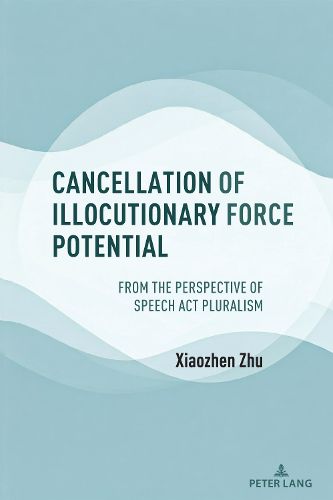Readings Newsletter
Become a Readings Member to make your shopping experience even easier.
Sign in or sign up for free!
You’re not far away from qualifying for FREE standard shipping within Australia
You’ve qualified for FREE standard shipping within Australia
The cart is loading…






This title is printed to order. This book may have been self-published. If so, we cannot guarantee the quality of the content. In the main most books will have gone through the editing process however some may not. We therefore suggest that you be aware of this before ordering this book. If in doubt check either the author or publisher’s details as we are unable to accept any returns unless they are faulty. Please contact us if you have any questions.
This book investigates the general cancellability of illocutionary force potential through a systematic exploration conducted along three main lines. Firstly, it addresses significant divergences in previous literature on meaning cancellation to uncover their fundamental causes and reconcile differing viewpoints. Secondly, it establishes a comprehensive taxonomy of illocutionary force potential based on a thorough review of previous classifications and an understanding of the characteristic features of illocutionary force. Thirdly, it examines the variation in the degree of cancellability among illocutionary forces of varying strengths and their implications for real-life communication.
The study distinguishes between two senses of illocutionary force potential cancellation: failure to actualize an illocutionary force and cancellation of an actualized illocutionary force through explicit or contextual means. It emphasizes the need for analyses of cancellability across three dimensions: literalness, speaker's intention, and addressees' intention, among other potential factors. Two depictions of cancellability are delineated: a static depiction based on classic Gricean criteria for consistent judgments and a dynamic depiction based on revised criteria that consider contextual use.
Ultimately, this study aims to advance research on the nature of illocutionary force and deepen understanding of meaning cancellation, contributing to the broader discourse on ordinary language meaning in diverse communication contexts.
$9.00 standard shipping within Australia
FREE standard shipping within Australia for orders over $100.00
Express & International shipping calculated at checkout
This title is printed to order. This book may have been self-published. If so, we cannot guarantee the quality of the content. In the main most books will have gone through the editing process however some may not. We therefore suggest that you be aware of this before ordering this book. If in doubt check either the author or publisher’s details as we are unable to accept any returns unless they are faulty. Please contact us if you have any questions.
This book investigates the general cancellability of illocutionary force potential through a systematic exploration conducted along three main lines. Firstly, it addresses significant divergences in previous literature on meaning cancellation to uncover their fundamental causes and reconcile differing viewpoints. Secondly, it establishes a comprehensive taxonomy of illocutionary force potential based on a thorough review of previous classifications and an understanding of the characteristic features of illocutionary force. Thirdly, it examines the variation in the degree of cancellability among illocutionary forces of varying strengths and their implications for real-life communication.
The study distinguishes between two senses of illocutionary force potential cancellation: failure to actualize an illocutionary force and cancellation of an actualized illocutionary force through explicit or contextual means. It emphasizes the need for analyses of cancellability across three dimensions: literalness, speaker's intention, and addressees' intention, among other potential factors. Two depictions of cancellability are delineated: a static depiction based on classic Gricean criteria for consistent judgments and a dynamic depiction based on revised criteria that consider contextual use.
Ultimately, this study aims to advance research on the nature of illocutionary force and deepen understanding of meaning cancellation, contributing to the broader discourse on ordinary language meaning in diverse communication contexts.